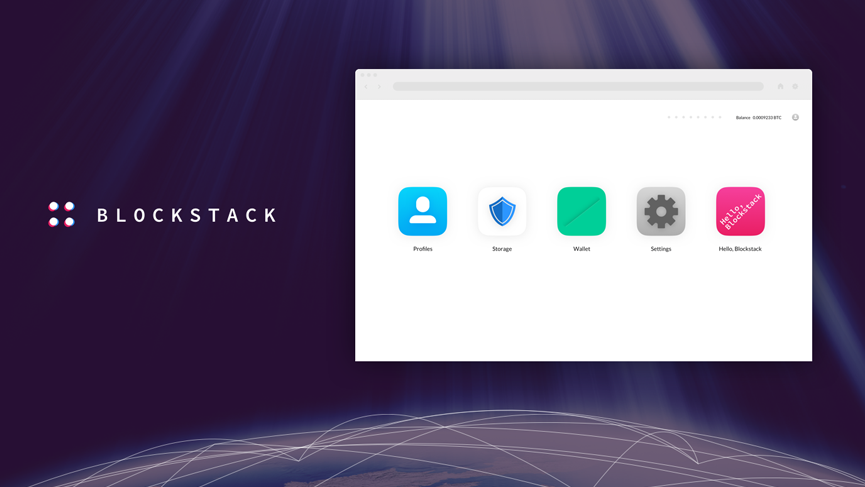Blockstack, the open source project for decentralization today announced the launch of the Blockstack browser, which allows developers everywhere to access a whole new internet. Developers can build apps on this new internet by downloading the Blockstack Mac or Linux app (Windows coming soon) and by using nothing more than their existing Chrome or Safari browsers.
Blockchain technology powers this new internet. For the first time ever, Blockstack looks to empower users to be able to access people, communities, apps, and services built on the blockchain from your browser. This new internet reflects how people interact with each other naturally, as they have for thousands of years. In open marketplaces and societies, people transact directly with other people to offer advice, goods, and services. Human interaction has never needed a middleman. The internet should work how real life works. Blockstack believes the permission-based environment of the traditional internet runs directly counter to true innovation.
The company says:
“If you are not an engineer at Google or Facebook, it’s hard for you to innovate. It’s not a level playing field. We simply don’t have the access, and if we do, it can be revoked at any time. Innovating on the internet should not require permission from a few mega-corporations. Our developer tools for the new, decentralized internet remove the reliance on existing infrastructure or third-party servers.”
“Blockchain-based tech has been around for a while, but the technology is too complex, and the average internet user has not had that “aha!” moment: that moment, as with the first Netscape browsers, when you felt you were discovering something truly new, vastly big, and unbelievably cool. Our platform and the dedicated community of developers will lead us to that “aha!” moment for the average internet denizen experiencing a new type of internet.”
“As our society becomes more dependent on the internet, its 40-year-old, antiquated infrastructure makes our digital lives more insecure than ever. If hackers today can shut down hospitals at a nationwide level, imagine what the next decade will bring?”
“A new internet needs to have security and safety as a core of its DNA. Applications and services cannot be owned and controlled by remote third-parties. We can build a digital world of truly peer-to-peer internet utilities not maintained by corporations, but collectively, by the people. We can build a digital world that encodes property rights, where we can own our data, and where the people are powerful.”
